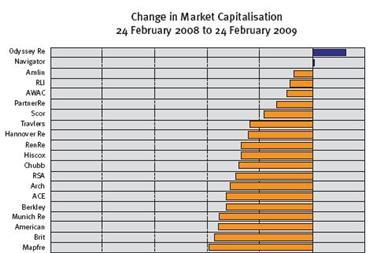The head of the FSA outlines future of financial services regulation
Financial firms demonstrated ‘incompetence’ and a ‘cavalier approach to risk management’ in the run up to the financial crisis, said Hector Sants, chief executive of the Financial Services Authority.
In a speech to the Securities & Investment Institute, the head of the City watchdog acknowledged that too often regulators relied on the judgment of senior manager and said it was his intention to adopt a more intensive supervisory approach.
‘This financial crisis has demonstrated that we can no longer rely on senior management judgements. In future, therefore, we will seek to make judgements on the judgements of senior management and take action if, in our view, those actions will lead to risks to our statutory objectives,’ said Sants.
He said supervisors would expect senior managers to describe the circumstances under which their firm could fail and to articulate what plans are in place to mitigate failure.
The FSA will be taking more action against senior management where there is evidence of culpable misconduct, said Sants. He insisted that the number of directors under investigation had increased threefold over the past year.
Another shortcoming exposed by the crisis was that non-executive directors struggled to fulfill their role of providing strong independent oversight of the executive management, said the FSA boss.
He insisted the regulator would work to ensure non-execs have relevant and diverse expertise, a willingness to challenge, and the ability to avoid ‘herd mentality’.
‘This will mean a different calibre of non-executive directors, with a different mindset,’ motioned Sants.
Non-execs would need to raise their technical skills in order to exercise rigorous oversight, he said. That would mean they would have to work on a more full-time basis and be ‘compensated appropriately’.
“Effective risk managers need a combination of technical competence, communication skills (to be able to convey arcane subjects in an accessible way) and stature in the organisation to provide genuine challenge to business managers.
Hector Sants, chief executive of the Financial Services Authority
‘Whilst it remains reasonable not to expect non-executive directors to have detailed quantitative knowledge of risk measurement it is surely reasonable to expect them to have a clear understanding of the nature of the risks and be able to ask the right questions,’ he said.
The FSA does not want to set up non-execs as a competing governance mechanism against the executive, outlined Sants. ‘We therefore continue to support the ‘unitary board’ model, but it must be recognised that such a structure runs the risk of encouraging the herd instinct, both in the sense of encouraging ‘follow the leader’ behaviour and in the sense of the reluctance to ‘break away from the pack’ and express an independent view.’
‘I should say that ensuring individuals have the necessary resolve to restrain over-bearing CEOs is undoubtedly a challenge, and I do believe here the regulators have a role in providing support and encouragement,’ he added.
He also stressed that all financial services firms needed an effective risk-management function with clear, independent reporting lines to the risk committee.
‘Effective risk managers need a combination of technical competence, communication skills (to be able to convey arcane subjects in an accessible way) and stature in the organisation to provide genuine challenge to business managers. This will happen, in my opinion, only if there is an executive director solely responsible for risk on the main board. We need to raise the risk officer up to the level of business unit heads.’ he added.
He also outlined the important role that shareholders and auditors could play in ensuring that the right business strategies and behaviours are pursued.
‘Shareholders must take responsibility to be active individually and more importantly, in collaboration with other investors, to engage with senior management and non-executive directors in companies and question the effectiveness of the construct of their boards. They should also challenge management to ensure business plans are credible,’ he said.
Sants concluded by insisting that the attitudes and competence of the individuals who conduct governance in financial firms needs major overhaul. ‘In particular we need to create governance arrangements that foster challenge without creating conflict,’ he said.




















No comments yet